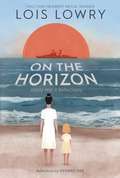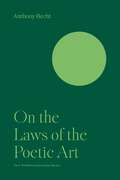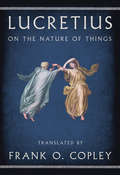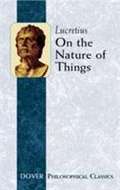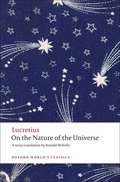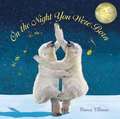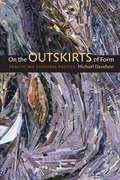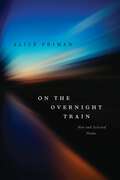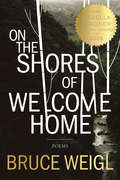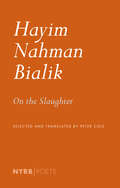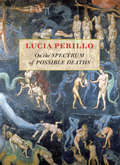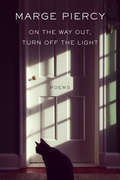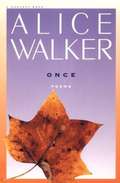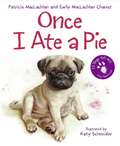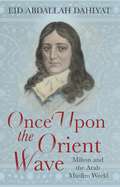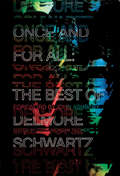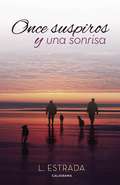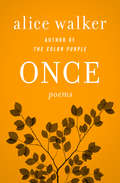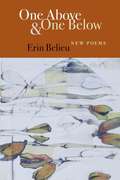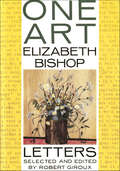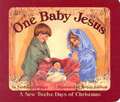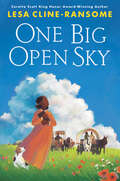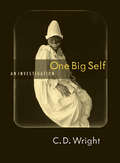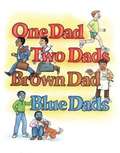- Table View
- List View
On the Horizon
by Lois LowryFrom two-time Newbery medalist and living legend Lois Lowry comes a moving account of the lives lost in two of WWII&’s most infamous events: Pearl Harbor and Hiroshima. With evocative black-and-white illustrations by SCBWI Golden Kite Award winner Kenard Pak. Lois Lowry looks back at history through a personal lens as she draws from her own memories as a child in Hawaii and Japan, as well as from historical research, in this stunning work in verse for young readers.On the Horizon tells the story of people whose lives were lost or forever altered by the twin tragedies of Pearl Harbor and Hiroshima. Based on the lives of soldiers at Pearl Harbor and civilians in Hiroshima, On the Horizon contemplates humanity and war through verse that sings with pain, truth, and the importance of bridging cultural divides. This masterful work emphasizes empathy and understanding in search of commonality and friendship, vital lessons for students as well as citizens of today&’s world. Kenard Pak&’s stunning illustrations depict real-life people, places, and events, making for an incredibly vivid return to our collective past. In turns haunting, heartbreaking, and uplifting, On the Horizon will remind readers of the horrors and heroism in our past, as well as offer hope for our future.
On the Laws of the Poetic Art (The A. W. Mellon Lectures in the Fine Arts #41)
by Anthony HechtA magisterial exploration of poetry’s place in the fine arts by one of the twentieth century's leading poetsIn this book, eminent poet Anthony Hecht explores the art of poetry and its relationship to the other fine arts. While the problems he treats entail both philosophic and theoretical discussion, he never allows abstract speculation to overshadow his delight in the written texts that he introduces, or in the specific examples of painting and music to which he refers. After discussing literature’s links with painting and music, Hecht investigates the theme of paradise and wilderness, especially in Shakespeare’s The Tempest. He then turns to the question of public and private art, exploring the ways in which all the arts participate in balances between private and public modes of discourse, and between an exclusive or elitist role and the openly political. Beginning with a discussion of architecture as an illustration of a more general theme of discord and balance, the penultimate lecture probes the inner contradictions of works of art and our reactions to them, while the final piece concerns art and morality.
On the Nature of Things
by Lucretius Frank O. CopleyReissued to accompany Stephen Greenblatt's The Swerve: the epic poem that changed the course of human thought forever. This great poem stands with Virgil's Aeneid as one of the vital and enduring achievements of Latin literature. Lost for more than a thousand years, its return to circulation in 1417 reintroduced dangerous ideas about the nature and meaning of existence and helped shape the modern world.
On the Nature of Things
by Lucretius W. E. LeonardThe Roman philosopher's didactic poem in 6 parts, De Rerum Natura -- On the Nature of Things -- theorizes that natural causes are the forces behind earthly phenomena and dismisses divine intervention. Derived from the philosophical materialism of the Greeks, Lucretius' work remains the primary source for contemporary knowledge of Epicurean thought.
On the Nature of the Universe
by Lucretius Ronald Melville Don Fowler Peta FowlerThis is a new verse translation of Lucretius's only known work, a didactic poem written in six books of hexameters. Melville's particularly literal translation of the use of metaphor is especially helpful to those looking at the text from a scientific or philosophical point of view. About the Series:For over 100 years Oxford World's Classicshas made available the broadest spectrum of literature from around the globe. Each affordable volume reflects Oxford's commitment to scholarship, providing the most accurate text plus a wealth of other valuable features, including expert introductions by leading authorities, voluminous notes to clarify the text, up-to-date bibliographies for further study, and much more.
On the Night You Were Born
by Nancy TillmanOn the night you were born, the moon smiled with such wonder that the stars peeked in to see you and the night wind whispered. "Life will never be the same. " On the night you were born, the whole world came alive with thanksgiving. The moon stayed up till morning. The geese flew home to celebrate. Polar bears danced. On the night you were born you brought wonder and magic to the world. Here is a book that celebrates you. It is meant to be carried wherever life takes you, over all the roads, through all the years. This debut picture book by Nancy Tillman has touched the hearts of readers of all ages, from the youngest readers, to new mothers, to grandparents. A New York Times and Publishers Weekly bestselling book, On the Night You Were Born is sure to be a beloved addition to family libraries.
On the Outskirts of Form: Practicing Cultural Poetics
by Michael DavidsonThis new book by eminent scholar Michael Davidson gathers his essays concerning formally innovative poetry from modernists such as Mina Loy, George Oppen, and Wallace Stevens to current practitioners such as Cristina Rivera-Garza, Heriberto Yepez, Lisa Robertson, and Mark Nowak. The book considers poems that challenge traditional poetic forms and in doing so trouble normative boundaries of sexuality, subjectivity, gender, and citizenship. At the heart of each essay is a concern with the "politics of form," the ways that poetry has been enlisted in the constitution--and critique--of community. Davidson speculates on the importance of developing cultural poetics as an antidote to the personalist and expressivist treatment of postwar poetry. A comprehensive and versatile collection, On the Outskirts of Form places modern and contemporary poetics in a cultural context to reconsider the role of cultural studies and globalization in poetry.
On the Overnight Train: New and Selected Poems
by Alice FrimanOn the Overnight Train collects a lifetime of thought and writing by Alice Friman, presenting poems of passion and permission, gravity and humor, alongside a great deal of truth telling peppered with the salt of invention. Here even the dead clink glasses and remain as alive and present as ever. Here the old stories abide and the new ones, written at the tail end of a life, face the inevitable with clear-eyed candor, wit, and grace. As Stephen Corey writes in his introduction, “Friman’s poetry is still kicking ass and breaking hearts as she steams toward ninety,” and On the Overnight Train captures the world of a distinctive poet whose work is vivid, understandable, and emotionally honest.
On the Shores of Welcome Home (American Poets Continuum #176)
by Bruce WeiglIn this Isabella Gardner Award-winning collection of poems, Bruce Weigl meditates on the ghosts and the grace one encounters in life’s second act. A celebrated poet and veteran of the Vietnam War, Weigl offers a nuanced sense of aging as a departure and death as a returning home. With a sage’s eye for mindfulness and a soldier’s longing for the country where he served, Weigl’s poems reveal the long scars left by Vietnam and the new possibilities one encounters in the wake of life-altering experiences.
On the Slaughter
by Hayim Nahman BialikThe first comprehensive English translation of a Russian-Jewish master's poetry, from the fiery poems he wrote in the wake of the pogroms of the early 20th century to his sublime lyrics about longing and self-reflection. On the Slaughter, named for Bialik's most famous poem, also includes a sample of the poet's work for children and an impassioned introduction by the collection's translator, MacArthur winner Peter Cole.Few poets in the history of Hebrew have possessed the power and prescience of Hayim Nahman Bialik. Born in 1873 in a small Ukrainian village, he spent his most productive years in Odessa and in his fifties made his way to British Mandatory Palestine. He died in Vienna in 1934.Bialik&’s body of work opened a path from the traditional Jewish world of Eastern Europe into a more expansive Jewish humanism. In a line that stretches back to the Bible and the Hebrew poetry of Muslim and Christian Spain, he stands out—in the words of Maxim Gorky—as &“a modern Isaiah.&” To this day he remains an iconic and shockingly relevant poet, essayist, and tutelary spirit.Translated and introduced by MacArthur-winning poet Peter Cole, On the Slaughter presents Bialik for the first time in English as a masterful artist, someone far more politically and psychologically unsettling than his reputation as the national poet of the Jewish people might suggest. This compact collection offers readers a panoramic view of Bialik&’s inner and outer landscapes: his visionary &“poems of wrath&” respond in startling fashion to the devastations of pogroms and a Jewish community in crisis, while his quietly sublime lyrics of longing, doubt, and withering self-assessment bring us into the silence at the heart of his art. The volume also includes a sampling of slyly sophisticated verse for children, and a moving introduction that bridges Bialik&’s moment and our own.
On the Spectrum of Possible Deaths
by Lucia Perillo"Perillo's poetic persona is funny, tough, bold, smart, and righteous. A spellbinding storyteller and a poet who makes the demands of the form seem as natural as a handshake, she pulls readers into the beat and whirl of her slyly devastating descriptions."-Booklist"Whoever told you poetry isn't for everyone hasn't read Lucia Perillo. She writes accessible, often funny poems that border on the profane."-Time Out New YorkThe poetry of Lucia Perillo is fierce, tragicomic, and contrarian, with subjects ranging from coyotes and Scotch broom to local elections and family history. Formally braided, Perillo gathers strands of the mythic and mundane, of media and daily life, as she faces the treachery of illness and draws readers into poems rich in image and story.When you spend many hours alone in a roomyou have more than the usual chances to disgust yourself-this is the problem of the body, not that it is mortalbut that it is mortifying. When we were young they taught usdo not touch it, but who can keep from touching it,from scratching off the juicy scab? Today I bita thick hangnail and thought of Schneebaum,who walked four days into the jungleand stayed for the kindness of the tribe-who would have thought that cannibals would be so tender?Lucia Perillo's Inseminating the Elephant (Copper Canyon Press, 2009) was a finalist for the Pulitzer Prize and received the Bobbitt award from the Library of Congress. She lives in Seattle, Washington.
On the Way Out, Turn Off the Light: Poems
by Marge PiercyA bountiful group of poems--direct, honest, and revelatory--that reflect on language, nature, old age, young love, Judaism, and our current politics, from one of our most read and admired poets"Words are my business," Marge Piercy begins her twentieth collection of poetry, a glance back at a lifetime of learning, loving, grieving, and fighting for the disenfranchised, and a look forward at what the future holds for herself, her family and friends, and her embattled country. In the opening section, Piercy tells of her childhood in Detroit, with its vacant lots and scrappy children, the bike that gave her wings, her ambition at fourteen to "gobble" down all knowledge, and a too-early marriage ("I put on my first marriage / like a girdle my skinny body / didn't need"). We then leap into the present, her "twilight zone," where she is "learning to be quiet," learning to give praise despite it all. There are funny poems about medicine ads with their dire warnings, and some possible plusses about being dead: "I'll never do another load of laundry . . ." There is "comfort in old bodies / coming together," in a partner's warmth--"You're always warm: warm hands / smooth back sleek as a Burmese cat./ Sunny weather outside and in."Piercy has long been known for her political poems, and here we have her thoughts on illegal immigrants, dying languages, fraught landscapes, abortion, President-speak. She examines her nonbeliever's need for religious holidays and spiritual depth, and the natural world is appreciated throughout. On the Way Out, Turn Off the Light is yet more proof of Piercy's love and mastery of language--it is moving, stimulating, funny, and full of the stuff of life.
Once
by Alice WalkerThis volume of poetry established Walker as a poet of unusual sensitivity and power. All of the poems in this collection were written either in East Africa, where Walker spent the summer of 1965, or during her senior year at Sarah Lawrence College.
Once I Ate a Pie
by Patricia MaclachlanWhen the farmer says he's too old to play the Easter Bunny, Minnie and Moo decide someone has to wear a bunny outfit for the children on Easter morning. But Elvis the rooster isn't interested. Hamlet the pig has to ask his mother (just as soon as he finds her). And the sheep simply won't hop. Can Minnie and Moo save Easter for the children? In their eleventh adventure, Minnie and Moo serve up an Easter extravaganza sure to delight beginning readers.
Once Upon the Orient Wave: Milton and the Arab Muslim World
by Eid Abdallah DahiyatIn an unusual view of one of the English language's greatest writers, an Arab scholar analyzes the oriental influences on Milton's work, and Milton's own influence on Arab writers and critics John Milton's great poems, Paradise Lost and Paradise Regained, are among the greatest pieces of writing in the English language. Like other writers of his time, Milton had only a sketchy idea of Islam and the Arab world, from travelers and linguists who had made the arduous journey to and from the Middle East. But buried in his works are signs that Milton had absorbed ideas and influences from Islam and Arab culture. Professor Dahiyat shows how from the Middle Ages, partly as an attempt to counteract Islam with Christianity, a wide range of writers and researchers spoke, read, and wrote Arabic and published books in the earliest days of printing which Milton could have read. He then shows how many different references there are to the Orient and Islam in Milton's writings, and discusses the later response of Arab writers and scholars to Milton's major works.
Once and for All: The Best of Delmore Schwartz
by Delmore Schwartz John Ashbery Craig Morgan TeicherThe publication of this book restores a missing chapter in the history of twentieth-century American literature With his New Directions debut in 1938, the twenty-five-year-old Delmore Schwartz was hailed as a genius and among the most promising writers of his generation. Yet he died in relative obscurity in 1966, wracked by mental illness and substance abuse. Sadly, his literary legacy has been overshadowed by the story of his tragic life. Among poets, Schwartz was a prototype for the confessional movement made famous by his slightly younger friends Robert Lowell and John Berryman. While his stories and novellas about Jewish American experience laid the groundwork for novels by Saul Bellow (whose Humboldt's Gift is based on Schwartz's life) and Philip Roth. Much of Schwartz's writing has been out of print for decades. This volume aims to restore Schwartz to his proper place in the canon of American literature and give new readers access to the breadth of his achievement. Included are selections from the in-print stories and poems, as well as excerpts from his long unavailable epic poem Genesis, a never-completed book-length work on T. S. Eliot, and unpublished poems from his archives.
Once suspiros y una sonrisa
by L. EstradaPoesía para encontrarse a sí mismo y sonreír al final. <P><P>Once suspiros y una sonrisa es una pequeña colección de poemas introspectivos que representan la visión de la autora sobre diversos aspectos de la vida. <P><P>Para agregarle una pizca de humor, así como deberían ser las situaciones cotidianas, la obra cierra con un poema ligero y divertido.
Once: Poems (G - Reference, Information And Interdisciplinary Subjects Ser.)
by Alice WalkerAlice Walker&’s first published book collects poems written as a student and on her first visit to Africa For readers seeking the origins of Alice Walker&’s potent, distinctive voice, this collection will provide ample insight. Composed while she was still a student at Sarah Lawrence College in the late 1960s, these poems are already engaged with some of the moral dilemmas that have defined Walker&’s entire career. Luminous vignettes from her first trip to Africa give way to reflections on the flourishing civil rights movement, while an eye for the transformative power of love and beauty run through all twenty-seven entries. Walker&’s talents are prodigious, yet it&’s her pure moral and aesthetic clarity that impress most in this debut work. This ebook features an illustrated biography of Alice Walker including rare photos from the author&’s personal collection.
One Above and One Below
by Erin BelieuErin Belieu's debut, Infanta, was selected for the National Poetry Series and quickly sold through its large first printing. Both The Washington Post and the National Book Critics Circle named it as one of the best poetry books for 1993. Now, in her second book, Belieu is proving herself a poet worthy of all the recognition. Coaxing a voice of urban chic from the dirt-filled roots of rural tension, these poems, many of which have appeared in publications such as The New York Times and The Atlantic Monthly, are as captivating as any in American poetry.
One Art: Letters
by Elizabeth BishopRobert Lowell once remarked, "When Elizabeth Bishop's letters are published (as they will be), she will be recognized as not only one of the best, but one of the most prolific writers of our century." One Art is the magificent confirmation of Lowell's prediction.From several thousand letters, written by Bishop over fifty years—from 1928, when she was seventeen, to the day of her death, in Boston in 1979—Robert Giroux, the poet's longtime friend and editor, has selected over five hundred missives for this volume. In a way, the letters comprise Bishop's autobiography, and Giroux has greatly enhanced them with his own detailed, candid, and highly informative introduction. One Art takes us behind Bishop's formal sophistication and reserve, fully displaying the gift for friendship, the striving for perfection, and the passionate, questing, rigorous spirit that made her a great artist.
One Baby Jesus: A New Twelve Days of Christmas
by Patricia A. PingryAges toddler & upwards. This new version of an old favourite celebrates the true reason for the season. On each of the twelve days of Christmas, a mother shows to her child additional pieces of the Nativity scene: one baby Jesus, two smiling parents, three Wise Men giving. . . until the stable is filled and a mother's love is revealed. This board book is perfect for seasonal gifts for young children who will treasure this Christmas rhyme with fun words and soft watercolour illustrations. Picture descriptions added.
One Big Open Sky
by Lesa Cline-RansomeThree women narrate a perilous wagon journey westward that could set them free—or cost them everything they have—in this intergenerational verse novel that explores the history of the Black homesteader movement. <p><p> 1879, Mississippi. Young dreamer Lettie may have her head in the stars, but her body is on a covered wagon heading westward. Her father, Thomas, promises that Nebraska will be everything the family needs: an opportunity to claim the independence they’ve strived for over generations on their very own plot of land. <p><p> But Thomas’ hopes—and mouth—are bigger than his ability to follow through. With few supplies and even less money, the only thing that feels certain is danger. <p><p> Right after the war ended/and we were free/we believed/all of us did/that couldn’t nothing hurt us/the way master had when we were slaves/Couldn’t no one tell us/how to live/how to die. <p><p> Lettie, her mother, Sylvia, and young teacher Philomena are free from slavery—but bound by poverty, access to opportunity, and patriarchal social structures. Will these women survive the hardships of their journey? And as Thomas’ desire for control overpowers his common sense, will they truly be free once they get there? <p><p> Coretta Scott King Honor-winning author Lesa Cline-Ransome’s striking verse masterfully portrays an underrepresented historical era. Tackling powerful themes of autonomy and Black self-emancipation, Cline-Ransome offers readers an intimate look into the lives of three women and an expansive portrait of generations striving for their promised freedom.
One Big Self
by C. D. Wright"Wright has found a way to wed fragments of an iconic America to a luminously strange idiom, eerie as a tin whistle, which she uses to evoke the haunted quality of our carnal existence."--The New YorkerInspired by numerous visits inside Louisiana state prisons--where MacArthur Fellow C.D. Wright served as a "factotum" for a portrait photographer--One Big Self bears witness to incarcerated men and women and speaks to the psychic toll of protracted time passed in constricted space. It is a riveting mosaic of distinct voices, epistolary pieces, elements from a moralistic board game, road signage, prison data, inmate correspondence, and "counts" of things--from baby's teeth to chigger bites: Count your folding money Count the times you said you wouldn't go back Count your debts Count the roaches when the light comes on Count your kids after the housefire One Big Self--originally published as a large-format limited edition that featured photographs and text--was selected by The New York Times and The Village Voice as a notable book of the year. This edition features the poem exclusively. C.D. Wright is the author of ten books of poetry, including several collaborations with photographer Deborah Luster. She is a professor at Brown University.
One Cowboy's Roundup: Prairie Poetry & Proverbs
by Ham HamiltonDoggie Diner The big dog was white-eyed and spotted and he showed a wide streak of mean, he wouldn't back off from anything, he was a tough cow man's dream, he would often sit on his haunches, shifting weight between his front feet, anything moving was seen as a meal, and that dog had appetite for red meat, he was owned by a grouchy old rancher, who grubbed a living best as he could, a man married to a big hearted woman, who "made do," as a good woman should, they didn't have much that was fancy, no rug ever covered their floor, dishes were plain, table was sparse; poverty seemed parked at their door, but they never whined about being poor, they shared what little they had. keeping feed for that dog was a chore, he often ate meat that went bad. it wasn't that they had so much meat, but that the dog killed now and then, it was easier to hang up the kill, than to try to keep the dog in a pen. so along comes a stranger one evening as chores were done for the day. and he wants some rest for his mount, and somewhere his body can lay. the woman offers to share supper, too. she warned that it wouldn't be much, he was warmed by the offer of food, and by her hospitality, touched. the dog knew that his feed would shrink and hunger would tug at his guts. he gave a white stare at the stranger that portended of ill from the mutt. .... supper was set to the big pine board, a large bowl and a spoon for each one. two utensils apiece was all that set out, for of anything else, they had none. The stranger tried to be patient, calm, keep frayed nerves under control, but seeing that dog shift on his feet kept his mind from appointed bowl, the dog rotated his stares, and shifts; the discomforted man gave a jerk; grumpy old rancher swore at the dog, which ducked it's head as it shirked, all was quiet at the table for a moment, but saying relaxed would be lies. man and beast were competing for food in country where the hungry one dies, talk picked up as they emptied their bowls and the men and woman conversed, about what was the country's goings-on and what was gettin' better, or worse, but the big dog showed his nervousness and unsettled the stranger some, the dog was now crowding his elbow And the growling got him undone. ...
One Dad, Two Dads, Brown Dad, Blue Dads
by Johnny ValentineFrom the book: "Blue dads? BLUE dads!? I don't know who has dads that are blue!" "I do! My name is Lou. I have two dads who both are blue."
